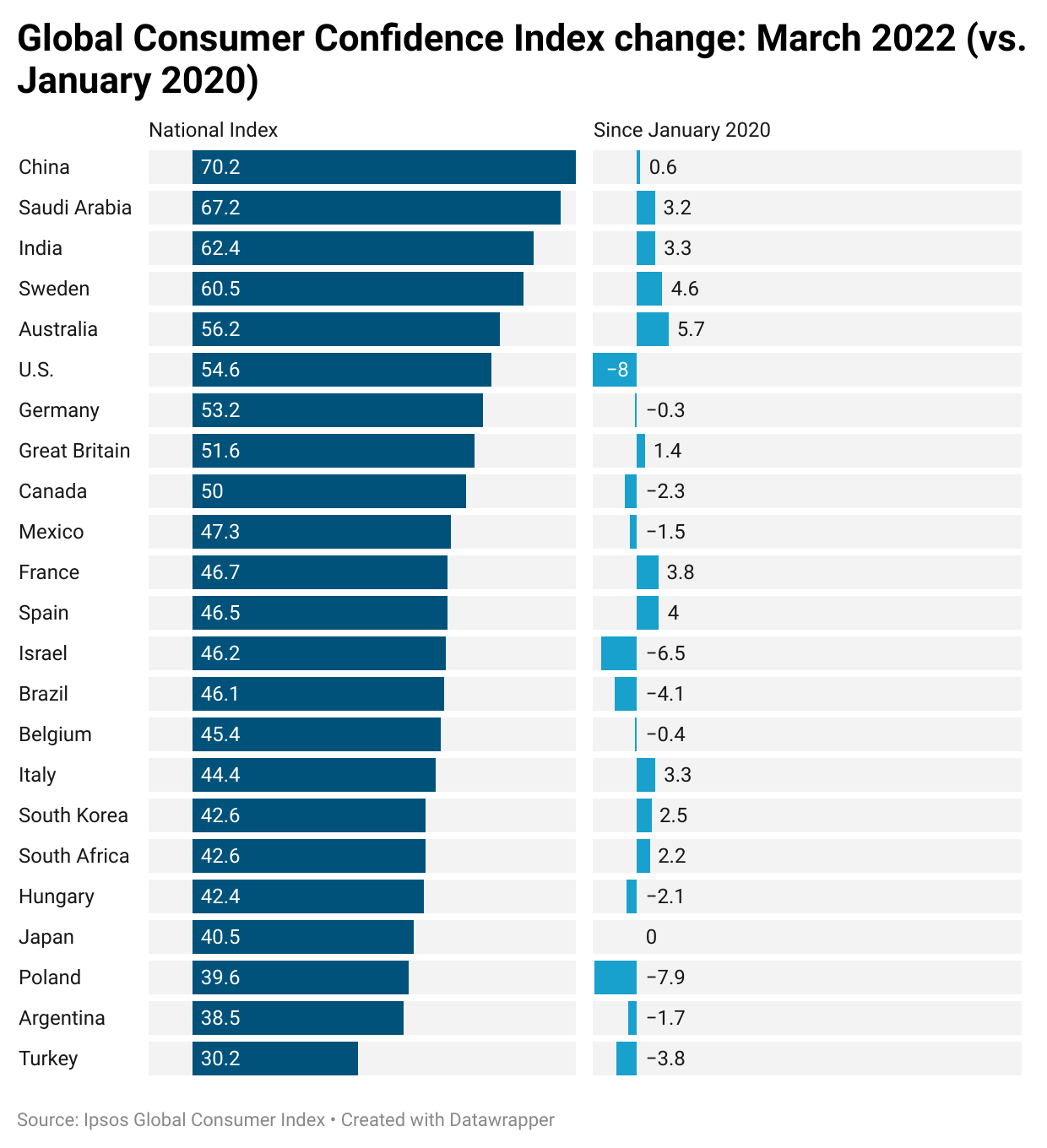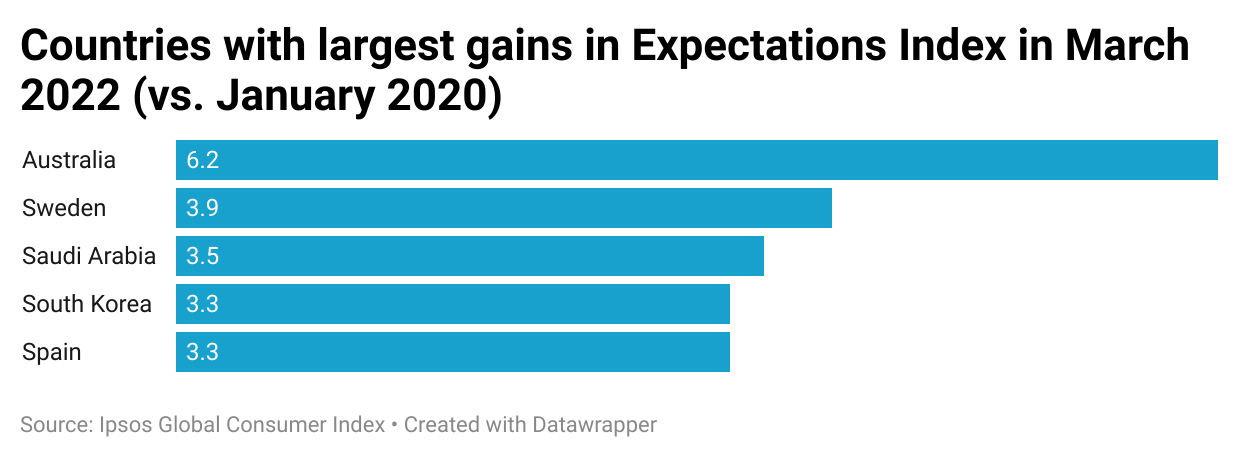

Consumer confidence below pre-pandemic levels in many countries
Uncertainty looms over consumers these days.
With the COVID-19 pandemic dragging on and the Ukraine conflict heating up, the latest survey for Ipsos’ Global Advisor (conducted between February 18 and March 4) finds national consumer confidence is below pre-pandemic levels in almost half of the countries polled.

Key numbers
- While several countries have been loosening pandemic-related restrictions in recent months, the National Consumer Confidence Index was lower in March 2022 in 11 of the 23 countries surveyed when compared to January 2020.
- Nine countries seem to have weathered the pandemic storm relatively well with national indexes now at or above the 50-point mark, including in: China (70.2), Saudi Arabia (67.2), India (62.4), Sweden (60.5), Australia (56.2), the United States (54.6), Germany (53.2), Great Britain (51.6) and Canada (50.0).
- The remaining 14 countries’ national indexes sit below the 50-point mark, with Turkey (30.2) being the only country with a national index currently below 35.

Sunny spots
Of all 23 countries in the survey, Australia had the largest gains since January 2020 in their Investment Index (purchasing and investment confidence, personal financial situation and outlook) at +7.6. The country also had the biggest gains in their Expectations Index (personal financial, community, economy and employment outlook) at +6.2.
Australia had some of “the longest and strictest lockdowns” of any nation in the world due to the pandemic, which led to “forced savings and pent-up consumption and demand, particularly for entertainment, hospitality and tourism services. Post-lockdown, the economy in these sectors has been booming, although retail is still struggling,” says Ben Brown, a Director with Ipsos in Australia.

In contrast, Sweden’s government opted against mandatory lockdowns throughout the pandemic. Despite these night-and-day strategies, the Scandinavian country came in just behind Australia in gains in their Expectations Index (+3.9), compared to January 2020.

And Sweden led the way in their Jobs Index (job security confidence, job loss experience and employment outlook), posting a +9.5 gain. The strong showing doesn’t surprise Nicklas Källebring, Senior Consultant for Public Affairs with Ipsos in Sweden, who notes: “Even if some business sectors have struggled during the coronavirus pandemic, the Swedish labour market has been strong and unemployment is lower today than it was before the pandemic.”
Storms rolling in
But, there are clouds on the horizon. Australian and Swedish consumers, along with the rest of the world, are feeling the pinch due to persistent inflation and are starting to see the financial fallout from the Ukraine conflict (which ramped up while Ipsos’ latest survey was being fielded in late February and early March).
“Energy prices have gone up during the last half year or so and we have seen gas and diesel prices skyrocketing since the Russian invasion of Ukraine. The price of food has also gone up,” says Källebring.
And Brown sees dark skies ahead in the Land Down Under: “There are dire warning signs of an impending economic crash. Inflation is becoming an increasing concern, particularly in regard to petrol prices amplified by the Russia-Ukraine issues.”
Looking ahead
The spectre of the continued rise of both inflation and the Omicron subvariant BA.2, along with the instability created by the mushrooming crisis in Ukraine, are set to impact consumer confidence around the globe in the months to come. Stay tuned.



